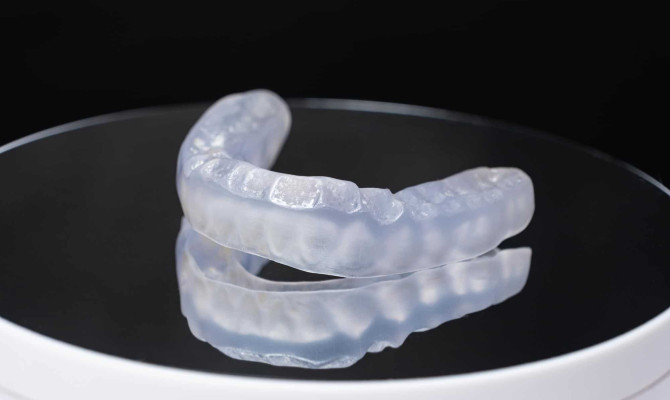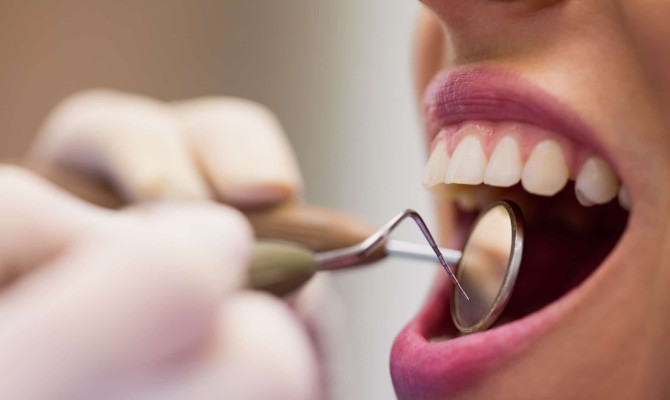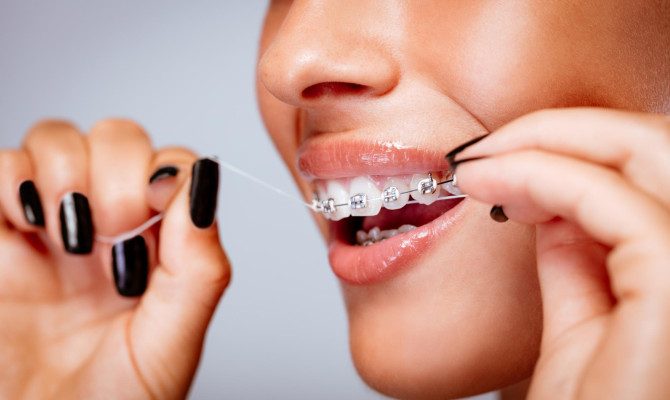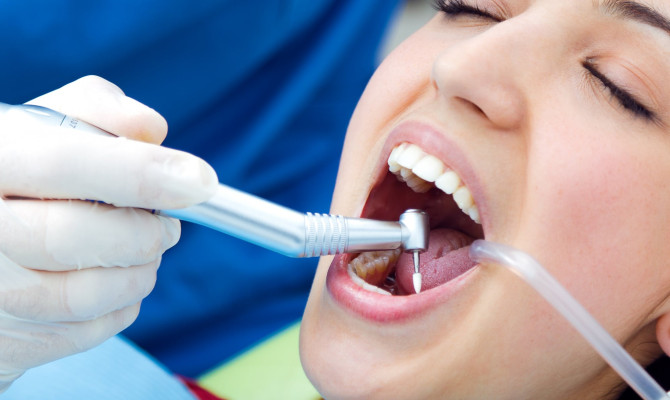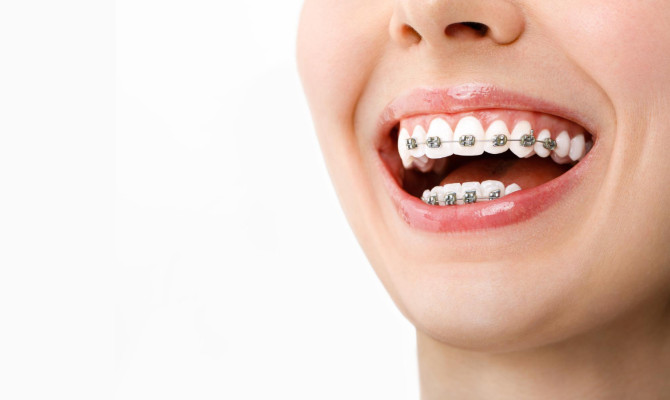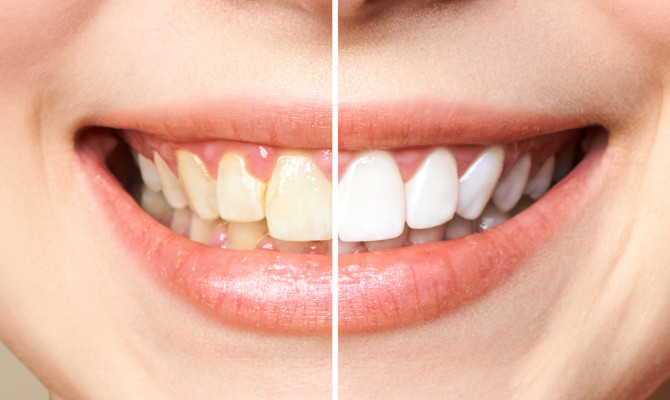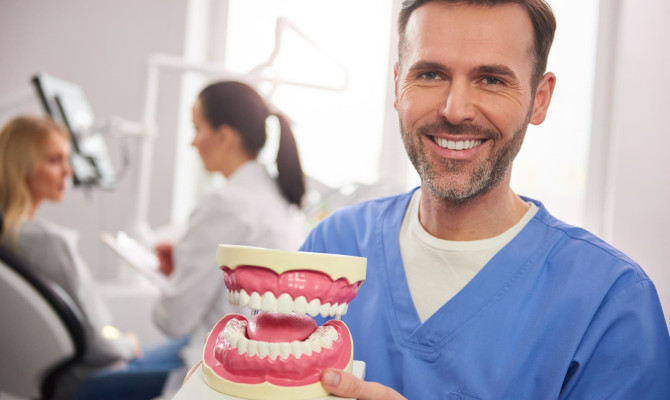Understanding Cavities: Do Cavities Cause Bad Breath?

- Cavities
- 03 Oct 2023
Introduction
Bad Breath
Have you ever wondered why your breath sometimes doesn’t smell fresh, even after brushing your teeth? Bad breath or halitosis is a problem that affects many people. While there are various reasons for bad breath, a dental cavity is a potential factor which contributes to this condition. In this article, we will explore the connection between cavities and halitosis.

Cavities
Understanding Cavities
Before delving into the relationship between cavities and bad breath, it’s important to understand what exactly a cavity is, how it forms, and its impact on oral health.
What Are Cavities?
- Cavities, also known as dental caries or tooth decay, are areas of damage in your teeth caused by a variety of factors, including bacteria, acidic substances, food debris, and inadequate oral care.
- Cavities can affect anyone, from young children to older people. 1 Introduction | Researched based study from National Institutes of Health When bacteria in your mouth feed on carbohydrates and sugars from the food you eat, cavities develop.
- These bacteria produce acid, which, over time, can erode the enamel (protective outer layer) of your teeth. Cavities or tiny holes are produced in the teeth when the protective layer of enamel weakens.
Stages of cavity formation:
The stages of cavity formation represent the gradual deterioration of the tooth structure as a result of bacterial activity and acid production. The different stages are as follows:
- Initial Demineralization
- Enamel Decay
- Dentin Decay
- Pulp Involvement
- Abscess formation
Initial Demineralization:
- This is the earliest stage of cavity formation. Acids are produced by the Bacteria in the mouth which feed on carbohydrates.
- Enamel, the topmost layer of the tooth, begins to demineralize as a result of these acids.
- As demineralization continues, it may lead to the appearance of white or chalky spots on the tooth’s surface.
- These white spots indicate the early formation of a cavity and are a sign that the enamel is weakening.
Enamel Decay:
- The weakened enamel can progress to the point of decay if the demineralization process persists.
- At this stage, the enamel breaks down, and a small hole or pit may form on the tooth’s surface.
- This hole is the actual cavity. It is still relatively small and may not cause noticeable symptoms.
Dentin Decay:
- If the cavity is not addressed, the decay can progress through the enamel and reach the dentin.
- It is the soft tissue layer beneath the enamel. Dentin decay can cause increased tooth sensitivity and may lead to more noticeable symptoms like toothache.
Pulp Involvement:
- In advanced cases, the decay can extend further into the tooth, reaching the innermost layer called the pulp. The pulp contains nerves and blood vessels.
- Bacterial invasion can cause the pulp to become infected or inflamed, which can result in intense tooth pain and the need for extraction or root canal therapy.
Abscess Formation:
- In the most severe cases, if the infection is left untreated, it can lead to the formation of a dental abscess, which is a painful pocket of pus that forms at the root of the tooth.
- Abscesses can cause intense pain and lead to systemic health problems if the infection spreads. 2 Understanding Cavities | Researched based study from Cleveland Clinic
Causes
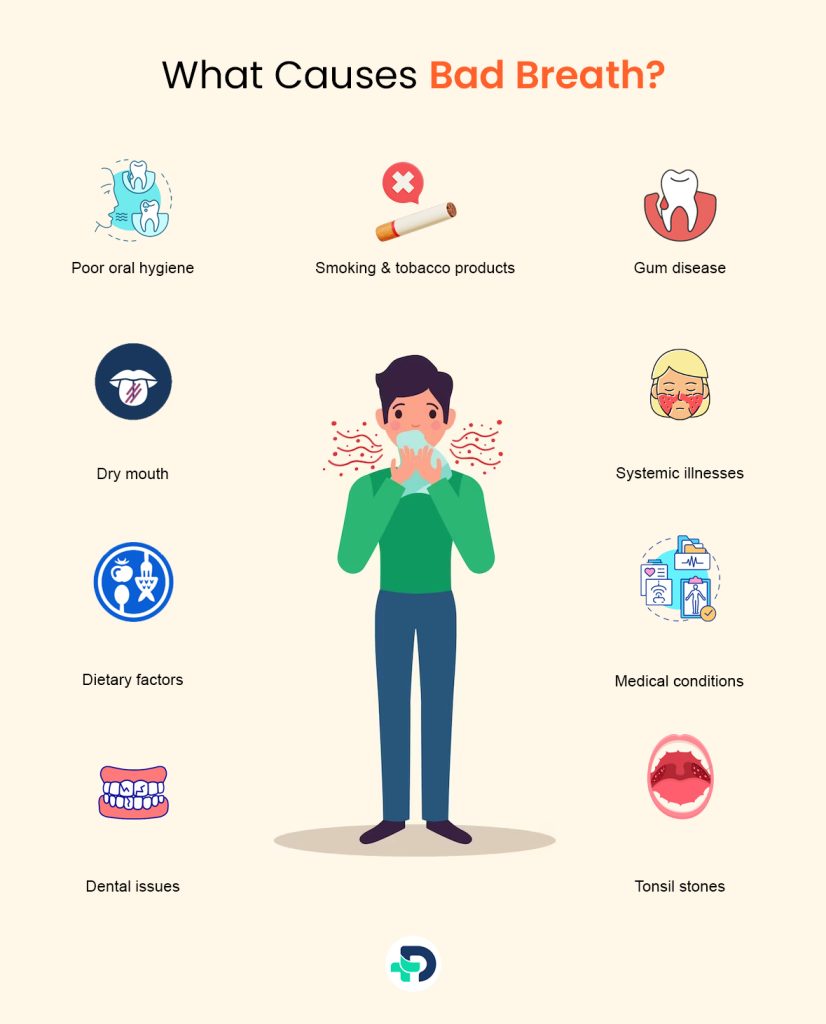
What Causes Bad Breath?
While cavities are one of the causes of bad breath, several other factors can contribute to this common issue.
- Poor oral hygiene
- Gum disease
- Dry mouth
- Smoking and tobacco products
- Dietary factors
- Medical conditions
- Dental issues
- Tonsil stones
- Systemic illnesses
Let’s examine them in detail.
Poor oral hygiene:
- Poor oral hygiene is one of the most prevalent reasons for foul breath.
- Food particles can build up in your mouth if you don’t brush and floss your teeth frequently, which in turn increases the growth of bacteria that release foul-smelling gases.
Gum disease (periodontal disease):
- Gum infections and inflammation can create pockets where bacteria thrive, leading to chronic bad breath.
Dry mouth (xerostomia):
- Saliva is essential for cleaning the mouth and balancing bacterial acids that are generated.
- A dry mouth can result from medications, medical conditions, or simply not drinking enough water, and it can contribute to bad breath.
Smoking and tobacco products:
- Smoking and using tobacco products can leave a lingering, unpleasant odour in the mouth and contribute to gum disease, leading to bad breath.
Dietary factors:
- Certain foods and drinks, such as garlic, onions, coffee, and alcohol, can leave a temporary odour in the mouth that persists until they are metabolized or eliminated from the body.
Medical conditions:
- Some medical conditions, like respiratory infections, sinusitis, acid reflux (gastroesophageal reflux disease or GERD), and certain metabolic disorders, can lead to chronic bad breath.
Dental issues:
- Apart from cavities, other dental issues like abscessed teeth, oral infections, or poorly fitting dental appliances (dentures, braces) can cause bad breath.
Tonsil stones (tonsilloliths):
- These are small, white or yellowish lumps that can develop on the tonsils and emit a foul odour as they break down.
Systemic illnesses:
- In some cases, systemic illnesses such as diabetes, liver disease, and kidney disease can produce bad breath as a symptom 3 Causes | Researched based study from Mayo Clinic.
Connection
The Connection Between Cavities & Bad Breath
- The connection between cavities and bad breath lies primarily in the role of bacteria in the mouth.
- Tooth decay is caused by bacteria, primarily Streptococcus mutans and Lactobacillus.
- These bacteria produce acids that break down tooth enamel and release foul-smelling gases as they feed on the remnants of food particles trapped in the cavity.
- These gases are one of the primary causes of bad breath associated with cavities.
What Does a Cavity Smell Like?
- A common question people have is whether cavities themselves have a distinct smell. Cavities do not have a specific smell on their own. Instead, the odour associated with cavities comes from the bacteria and the decay process occurring within them.
- As bacteria break down trapped food particles and produce acids, they release gases that can create a foul-smelling odour, similar to that of decaying matter.
Can a Cavity Cause Bad Taste in the Mouth?
- Another aspect to consider is whether a cavity can lead to a bad taste in the mouth.
- Yes, a cavity can leave the mouth with an unpleasant taste. When bacteria in the cavity break down food particles and produce acids, it can lead to a sour, unpleasant taste.
- Additionally, the presence of decay within the cavity can contribute to a lingering bad taste sensation.
Management
How to Cure Bad Breath from Tooth Decay?
Curing bad breath caused by tooth decay involves addressing the underlying issue of dental caries (cavities) and maintaining good oral hygiene practices to prevent further problems.
The following steps will help you deal with foul breath caused by dental decay:
Visit a Dentist:
- Schedule an appointment with a dentist to determine the degree of your dental decay. They will do a comprehensive examination, which can involve X-rays to spot cavities.
- Follow the dentist’s recommendations for treating cavities. This typically involves dental fillings to repair the decayed teeth.
Maintain Proper Oral Hygiene:
- Brush your teeth: Brush your teeth using fluoride toothpaste twice daily, preferably after meals. Make sure to pay special attention to the chewing surfaces and the gumline.
- Floss daily: Use dental floss or an interdental cleaner every day to remove plaque and food fragments from between your teeth and along the gum line.
- Use an antimicrobial mouthwash: Rinsing with an antimicrobial mouthwash can help reduce the bacterial population in your mouth and temporarily freshen your breath.
Clean Your Tongue:
- Bacteria that cause bad breath can reside on the tongue. Gently clean your tongue with a tongue scraper or by using the backside of your toothbrush.
Stay Hydrated:
- Drink plenty of water to help maintain adequate saliva production. Saliva assists in mouth cleaning and bacterial acid neutralization.
Avoid Tobacco Products:
- If you are a smoker or use other forms of tobacco, think about stopping as they can cause unpleasant breath along with other oral health issues.
Watch Your Diet:
- Avoid foods and drinks that are known to promote bad breath, such as alcohol, coffee, garlic, and onions.
- Eat a balanced diet that is high in fruits and vegetables and limit your intake of sweet and acidic foods and beverages.
Manage Dry Mouth:
- If you have a dry mouth (xerostomia), address its underlying causes, such as medications or certain medical conditions, with your healthcare provider.
- Use sugar-free gum or lozenges to stimulate saliva production.
Regular Dental Check-ups:
- Keep seeing your dentist for routine examinations and cleanings. This will help catch any new cavities or dental issues early and prevent bad breath from recurring.
FAQs
Do Cavities Cause Bad Breath? – Frequently Asked Questions
Q. Does filling cavities stop bad breath?
- By filling the cavities, a dentist eliminates the space where bacteria can thrive, and the food particles can get trapped.
- This can lead to an improvement in your breath odour, especially if the cavities were a significant source of the problem.
- However, it’s important to note that bad breath can have multiple causes, and filling cavities alone may not entirely eliminate the issue.
- For keeping fresh breath and preventing the development of new cavities, good oral hygiene techniques, such as flossing and brushing twice a day, coupled with routine dental check-ups and cleanings, are essential.
- Additionally, addressing any underlying causes of bad breath, such as gum disease or dry mouth, may also be necessary for complete and long-lasting relief from halitosis. It’s best to contact a dentist if you have worries about poor breath for a thorough evaluation and appropriate treatment recommendations.
Q. How long can a cavity go untreated?
- Well, it depends on the cavity. If it’s a small one and you catch it early, you might not have much to worry about. However, if you disregard it for a while, it can grow bigger and deeper. Eventually, it might start to hurt, and that’s a sign it’s gotten worse.
- If you leave a cavity untreated for too long, it can lead to more significant problems, like infections or even losing the tooth.
- So, it’s best to get it checked by a dentist as soon as you can to prevent it from getting worse.
- It will be simpler and less expensive the sooner you take care of it. Therefore, if you believe you have a cavity, don’t delay. 2FAQs | Researched based study from Cleveland Clinic
Q. How do you clean a cavity?
- You cannot clean a cavity on your own once it has formed. A cavity is a physical hole or damage in your tooth’s structure caused by decay.
- Cleaning a cavity requires dental treatment and professional care. Only a qualified dentist should perform the process of cleaning a cavity.
- It’s essential to address cavities promptly to prevent them from getting larger and causing more significant dental problems.
- Early detection of cavities through routine dental checkups can make them easier to treat.
Here’s how a dentist typically cleans and treats a cavity:
- Diagnosis: The dentist will assess the size of the cavity during diagnosis. They may use X-rays to see the full extent of the damage.
- Numbing: If required, the dentist will use a local anaesthetic to numb the area around the problematic tooth so that you won’t experience any pain during the treatment.
- Removing decay: The dentist uses specialized dental instruments and removes the decayed part of the tooth. As a result, a clean and healthy tooth structure remains after the procedure.
- Filling: Once the decay is removed, the dentist fills the cavity with a filling material. Common filling materials include Amalgam (silver), GIC (Glass Ionomer Cement) and Composite resin (tooth-coloured). The filling material seals the cavity and prevents further decay.
- Shaping and polishing: The dentist shapes and polishes the filling to ensure it fits well with your bite and feels smooth in your mouth.
- Final check: The filling is examined by the dentist to make sure it is stable and functional. They may take X-rays again to verify the quality of the restoration.
Takeaway
Do Cavities Cause Bad Breath? – Yes, But it can be Cured
In conclusion, cavities can indeed cause bad breath and even a bad taste in the mouth. The bacteria and decay processes associated with cavities are important causes of these issues. However, addressing bad breath from tooth decay involves a combination of visiting your dentist for treatment, following good oral hygiene practices, and choosing a healthy lifestyle. Understanding the relationship between cavities and bad breath helps you to take care of your oral health and enjoy fresh breath.
Any feedback on this article?
 This Articles content was accurate
This Articles content was accurate Very Informative Article
Very Informative Article I have a question or a comment
I have a question or a comment
 This article contains inaccurate content
This article contains inaccurate content This article was not helpful
This article was not helpful I have a question or a comment
I have a question or a comment
We appreciate your helpful feedback!
Checkout our social pages
References
-
National Institutes of Health
Introduction
-
Cleveland Clinic
Understanding Cavities | FAQs
-
Mayo Clinic
Causes












